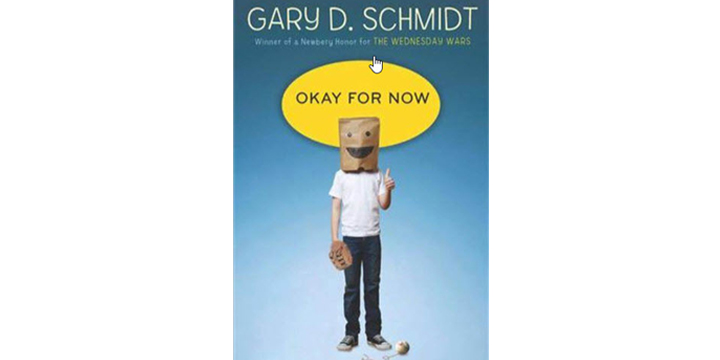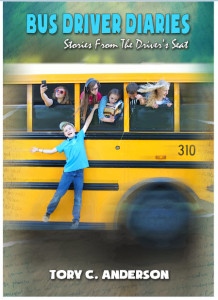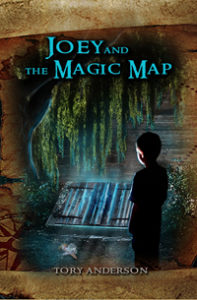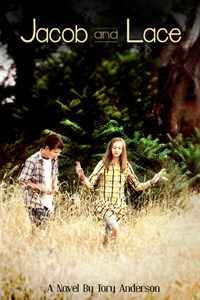I’ve only read one book by Gary Schmidt. That book is Okay For Now. In one fell swoop he made a fan of me. Okay For Now delighted me on so many different levels. There was the storyline, the voice, they writing style, the unique creativity—the list goes on and on. In this review I will focus on only two of them.
Framework
Schmidt cleverly, perhaps even brilliantly, builds the story within a framework of the paintings of birds by John James Audubon. Creating a unique framework for a novel is a risky endeavor. If the author isn’t careful, the framework can distract from the story or give it unneeded complexity. In Okay For Now the framework is intrinsic to the story. The protagonist, Doug Swietek, comes upon a display in the library one of the very last existing folios of Audubon’s original paintings. Doug, who has every right to be a thug (albeit a young, skinny one) due to the tough family he comes from, falls in love with the painting he sees displayed under glass in the open book. An elderly librarian discovers Doug discovering the painting. Luckily for Doug, this librarian sees past the ‘thug in training’ image, and intuitively turns Doug into an artist in training. Each chapter begins with a picture of a different bird as drawn by Audubon. We see each bird through Doug’s eyes, whether the bird is terrified, silly, or unknowingly walking into its own death. The chapter connected to the bird follows in theme the mood of the picture. As the book progresses Doug returns again and again to library as he learns. These visits, and what Doug learns as he learns to draw play beautifully into the story.
For example, the bird for the first chapter is the Arctic Tern. In Doug’s eyes, the Arctic Tern is falling out of the sky of an empty, uncaring world. Doug is obsessed with the eye of the tern:
This bird was falling and there wasn’t a single thing in the world that cared at all.
It was the most terrifying picture I had ever seen.
The most beautiful.
Doug, who has never drawn before, begins to trace the bird on the glass with his fingers.
. . . And then, at the end, I drew the round and terrified eye.
At this point in the book Doug is living in an empty and uncaring world. The world isn’t uncaring in a neutral way. No, Doug could only wish that he could be so lucky. The world borders on ‘brutal’ in its treatment of this “skinny little delivery boy.” By the way, in the hands of anyone other than Schmidt, the harshness in this book may have made the book unreadable for me. Just keep reading. Not all the birds are falling out of an unfeeling sky.
In a turn of events, Doug finds himself watching his brother getting a beating instead of himself. You would think this would bring him a perverse pleasure, but this is how Doug puts it:
I guess I should have been happy about what happened to him. Like he was when it happened to me. But I saw my brother’s face when my father flipped on the light switch.
The terrified eye.
Schmidt masterfully crafts elements of each picture seamlessly into each chapter of the story. It added immensely to the richness of the story.
Voice
Schmidt gave the narrator, Doug, a voice that I would never tire of. Doug is in eighth grade. Those who spend much time around eighth graders (I myself drive a busload of them to and from school every school day) know that their voices aren’t particularly attractive. This may be due to the onset of puberty, proneness to potty talk (to put it nicely), and a lack of education and experience.
Fortunately for the reader Schmidt channels the hope in Doug. Because of this, although we are listening to a Doug who is dealing with a brutally unfair world, we are listening to a boy who refuses to pass the hate forward. Doug doesn’t’ think about this. He’s not trying to be good. He just has a natural resistance to hate.
Schmidt creates this voice skillfully and with consistency. Quite often the author establishes or enforces the voice with few words. He will use a few more words to set up a voice tool, and then use code words to put the tool into action. For example:
I’m not lying when I say that Hollywood actresses would kill for my mother’s smile. You think Elizabeth Taylor can smile? If you saw my mother’s smile, you wouldn’t even let Elizabeth Taylor in the same room.
If Joe Pepitone saw my mother’s smile, he would give up baseball for her. That’s how beautiful her smile is.
Forty pages later, as they are getting ready to wash dishes, we get:
“Thanks for the meat loaf, Mom,” I said.
“Thanks for the daisies,” she said.
“I’ll dry,” I said.
That smile.
Schmidt does this, effectively, again and again.
Another delightful technique Schmidt employs in building Doug’s voice is having Doug speak directly to the audience. Doug becomes very personal to us. We become his unseen companion, like a guardian angel, who follows Doug around, but can do no more for him than listen. Here are some examples.
After a drawing session with Mr. Powell, the librarian, Doug basically turns to us and says:
By the way, in case you weren’t paying attention or something, did you catch what Mr. Powell called me? “Young artist.” I bet you missed that.
Schmidt got me on that one. I had to go back and look twice to find the reference so that Dough wouldn’t be so smug about being right. I found it. Later Schmidt plays with us more to build suspense.
Everything in the gym stopped—again. But this time, it wasn’t because I was mouthing off to Coach Reed. It was because of what they saw.
And what they saw—it’s not any of your stupid business.
One of my favorites he uses again and again, sometimes in joy, sometimes in pain. This is one of the happy uses after the librarian compliments his drawing skills:
I tried to remember the last time anyone told me I was pretty good at anything.
You know how that feels?
Schmidt has Doug make lists for us to help us understand how his life is going. After the unintended discovery in the gym life becomes even more difficult for Doug:
Here are the stats from the last two weeks of October:
Three fights in the downstairs hall. No wins.One loss.
Two ties. Mr. Ferris stopped them.
One fight in Mr. McElroy’s class with barbarian hordes.
A tie.
Two fights in the upstairs hall. No wins. One loss. One tie.
Mr. Ferris stopped it.
The list goes on. Schmidt doesn’t need to weigh us down with fight scenes that many authors take such glee in. These lists in Doug’s voice are clever and effective.
In English class Doug is forced (along with everyone else) to read Jane Eyre. This is very difficult for him. However, he ought to be grateful for the reading experience gave him an entire new level of language to express himself at the end of a delightful scene. Maybe you can figure it out:
And so, dear reader, I kissed her.
I loved this book. I could go on with example after example of why, but I will let you read the book and find your own reasons. In the end, Schmidt took me into a harsh and unfair world that took shot after shot at a vulnerable Doug Swietek. But, while giving a nod to the darkness and brutality in the world, Schmidt, weaves in the lighter tones that push the darkness back and leaves us looking for the better parts of our own lives.
__________________________________________________________________________________
These books by Tory Anderson are now available on Amazon in Kindle and paperback format:





